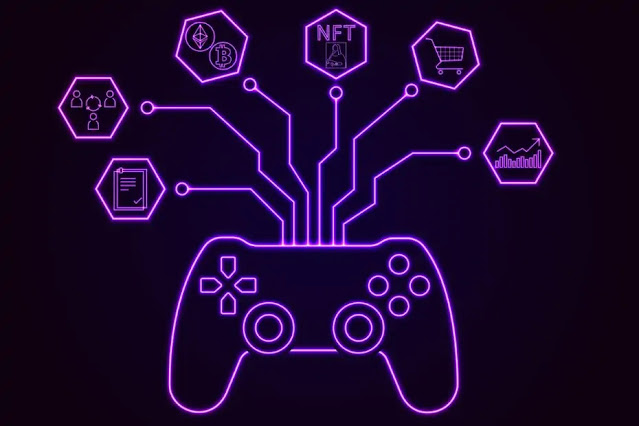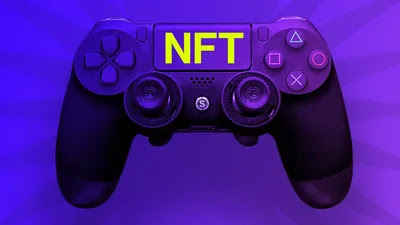Cryptocurrency has taken the world by storm over the past few years, with its decentralized nature and secure blockchain technology making it a popular choice for a wide range of applications. One area that has seen significant growth in the adoption of cryptocurrency is the gaming industry, with a growing number of games now accepting cryptocurrency as a form of payment.
In this article, we'll take a look at the current state of the crypto gaming infrastructure and explore the various ways in which cryptocurrency is being used in the gaming industry. We'll also discuss some of the challenges and opportunities presented by this emerging trend.
What is Crypto Gaming Infrastructure?
Crypto gaming infrastructure refers to the various technologies, platforms, and protocols that enable the use of cryptocurrency in the gaming industry. This includes everything from the development of games that accept cryptocurrency as a form of payment, to the integration of cryptocurrency into existing gaming platforms and the creation of new cryptocurrency-based gaming platforms.
One of the key benefits of crypto gaming infrastructure is that it allows for faster, cheaper, and more secure transactions than traditional payment methods. Cryptocurrency transactions are conducted on the blockchain, which is a decentralized and secure ledger that allows for the transfer of value without the need for intermediaries such as banks. This makes it an attractive option for both game developers and players, as it enables them to avoid the high fees and long processing times associated with traditional payment methods.
How is Cryptocurrency Being Used in the Gaming Industry?
There are several ways in which cryptocurrency is being used in the gaming industry, including the following:
-
In-game purchases: Many games now accept cryptocurrency as a form of payment for in-game items, such as virtual currency, weapons, and other virtual goods. This allows players to purchase these items using their cryptocurrency holdings, rather than having to use traditional payment methods.
-
Microtransactions: Microtransactions, or small in-game purchases, are a common feature in many games. Cryptocurrency can be used to facilitate these transactions, enabling players to quickly and easily purchase items such as extra lives or power-ups.
-
Online gambling: Cryptocurrency is also being used in the online gambling industry, with a growing number of online casinos and sports betting platforms now accepting cryptocurrency as a form of payment.
-
Gaming platforms: Some gaming platforms, such as the popular streaming service Twitch, have begun accepting cryptocurrency as a form of payment for subscription fees and other services.
-
Cryptocurrency-based gaming platforms: In addition to traditional gaming platforms that have begun accepting cryptocurrency as a form of payment, a number of cryptocurrency-based gaming platforms have also emerged. These platforms, such as the blockchain-based game Cryptokitties, are built entirely on the blockchain and use cryptocurrency as their primary form of payment.
Challenges and Opportunities for Crypto Gaming Infrastructure
While the adoption of cryptocurrency in the gaming industry offers a number of benefits, there are also a number of challenges that must be overcome in order for crypto gaming infrastructure to reach its full potential.
One of the biggest challenges facing crypto gaming infrastructure is the high volatility of cryptocurrency prices. This can make it difficult for game developers to set prices for in-game items and can also make it difficult for players to know how much they are spending in real-world terms.
Another challenge is the lack of widespread adoption of cryptocurrency, with many people still unfamiliar with how to use it and unsure of its security. This can make it difficult for game developers to attract a large player base and can also make it harder for players to find games that accept cryptocurrency.
Despite these challenges, there are also a number of opportunities presented by the growth of crypto gaming infrastructure.
Follow Us


![What is Crypto Gaming Infrastructure and How its Working [2023] What is Crypto Gaming Infrastructure and How its Working [2023]](https://blogger.googleusercontent.com/img/b/R29vZ2xl/AVvXsEgty7eip65dRDRFci6DmwsQErQB5jjC-u9PxcA6lG4WMnx8dMLT4HrDWsJmY2BNeFt50CU1ujgw0DRb9hJ9DON_FqCPmaiw0pMdPJICX6828PeQ21m2nFJOVejbLb3jGZ_tTlz9BxAO6wdcQ8rR-0B9XBS2vUDlmLneHsLzKKEvkLICrtjw9E_X73ZXdQ/w640-h320/9Nf4h1wB.jpeg)







![What is Crypto Gaming Infrastructure and How its Working [2023]](https://blogger.googleusercontent.com/img/b/R29vZ2xl/AVvXsEgty7eip65dRDRFci6DmwsQErQB5jjC-u9PxcA6lG4WMnx8dMLT4HrDWsJmY2BNeFt50CU1ujgw0DRb9hJ9DON_FqCPmaiw0pMdPJICX6828PeQ21m2nFJOVejbLb3jGZ_tTlz9BxAO6wdcQ8rR-0B9XBS2vUDlmLneHsLzKKEvkLICrtjw9E_X73ZXdQ/w100/9Nf4h1wB.jpeg)
0 Comments